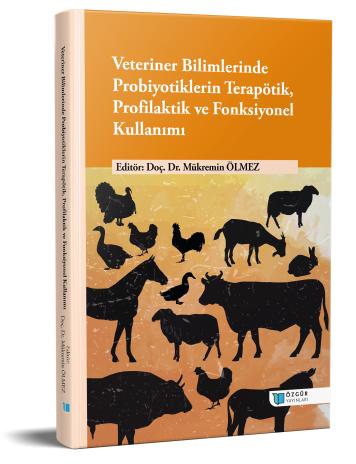
An Innovative Approach to Combating Uterine Infections in Cows: Probiotics
Chapter from the book:
Ölmez,
M.
(ed.)
2023.
Therapeutic, Prophylactic, and Functional Use of Probiotics in Veterinary Sciences.
Synopsis
In this book chapter, the aim was to evaluate the potential of probiotics as an effective alternative treatment method against uterine infections commonly observed in cows. The postpartum period, during which the healing of the uterus and the reduction of infection risk are crucial, holds significant importance for the reproductive performance and overall health of cows. Uterine infections can negatively impact herd health and farm productivity, necessitating serious research efforts to develop effective treatment and prevention methods. The limited use of antibiotics due to residues in meat and milk, along with the increasing antibiotic resistance, has highlighted the need for natural and sustainable treatment options, making probiotics a subject of investigation. Probiotics can reduce infection risk by maintaining the natural microbiota balance and enhance the immune system, thereby increasing resistance against diseases. Particularly, probiotics belonging to Lactobacillus and Pediococcus species have shown efficacy in preventing and treating uterine infections in cows. Studies have demonstrated the effectiveness of specific lactic acid bacteria (LAB) strains, especially against uterine infections like metritis. The intravaginal application of these LAB strains holds the potential to prevent and treat uterine infections. Moreover, positive effects of probiotics on reducing uterine infections and improving reproductive performance have been identified. However, the efficacy of probiotics requires further detailed exploration, including appropriate dosages, application methods, and treatment durations. Advanced studies in this field can provide additional insights into how probiotics can be utilized for the treatment and prevention of uterine infections, demonstrating the positive contributions of this natural solution to the health of cattle. Correctly applied probiotic treatments can enhance the reproductive abilities of cattle and support sustainable livestock farming by reducing antibiotic usage in organic operations.

